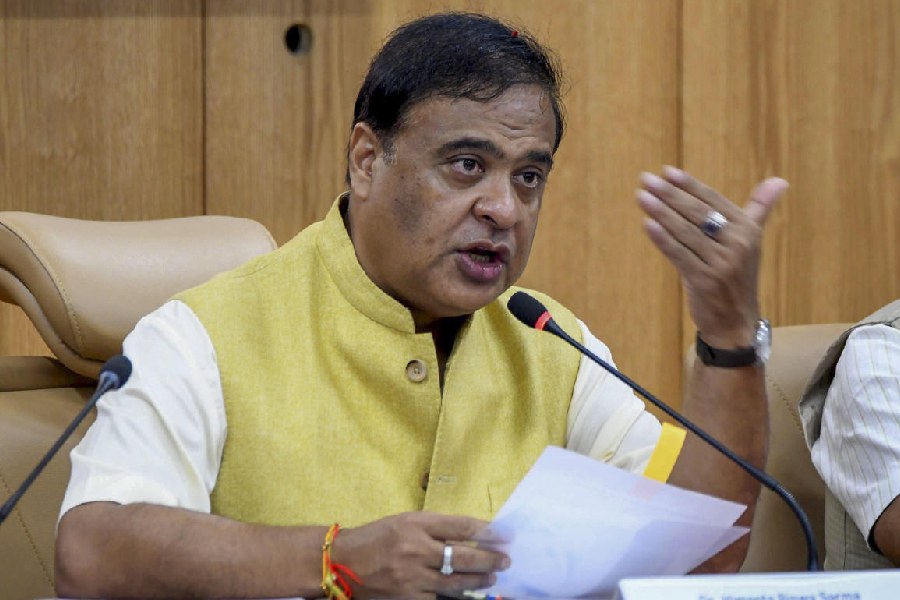|
|
| Poster of the film, Beau Geste, starring N.G. Pritchard |
Calcutta’s claim to Olympic fame stretches back to the early part of the 20th century. It is widely believed that sprinter Purma C. Bannerjee, who was a member of the maiden Indian contingent to the Olympics at Antwerp in 1920 (consisting of three athletes and three wrestlers), could lay claim, at least alphabetically, to being India’s very first Olympian.
But an athlete, who was born in Calcutta, competed in the 1900 Paris Olympics and won two silver medals in athletics. His name? Norman Gilbert Pritchard, a man with many firsts to his credit: the first Asian-born athlete to win an Olympic medal, the first Olympian to act in Hollywood, the first to score a hat-trick on Indian soil in an official football tournament in 1897. But was he also the first Indian to compete in the Olympics?
The debate lay dormant till 2000 — exactly 100 years after his Olympic feats — when the famed British Olympic historian, the late Ian Buchanan, claimed that the medals won in the 200 metres and (since discontinued) 200-metre hurdles should be credited to Great Britain. What is not in dispute is Pritchard’s Calcutta connection. It is a connection the city can rightly be proud of.
Norman was born on June 23, 1875, according to a copy of his baptismal certificate which is in this writer’s possession. His parent’s names are listed as George Peterson and Helen Maynard Pritchard, and he was baptized on 28 January, 1883 “within the jurisdiction of the Senior Marriage Registrar, Calcutta for the quarter ending 31st. March 1883”.
In the document, George Peterson Pritchard’s profession is listed as accountant, and his abode as Alipore. Norman’s baptismal certificate was unearthed three years ago by the noted English track historian and statistician, Keith Morbey, from the India Office Records section of the British Library in London.
Morbey also found entries for Norman Pritchard in Thacker’s Indian Directory. In the section on Calcutta residents, Pritchard is listed, in 1902-04, as “assistant, Bird and Co., 100-1 Clive Street”. For 1905, the entry reads: “Pritchard, NG, assistant, signs per pro, Bird and Co., Res. 3 Lansdowne Road.”
There are no further entries as by then he had moved to England with his father to trade in the jute market. It is said his father had taken the young Norman to jute plantations in Assam when he was 17 before they returned to Calcutta. Bird and Co. (later McNelly Bird and Co.) was a British firm, which wound up its Calcutta office in the late Sixties. A high-rise building now stands at 3 Lansdowne Road.
Although he returned to his birthplace after his Olympic feats in Paris, Pritchard finally said farewell to Calcutta in late February 1905, moving to England to trade in jute. He was given a farewell by the Indian Football Association (of which he was a joint honourary secretary from 1900-05) on the evening of February 25.
According to a contemporary newspaper report: “A meeting of the members of the Indian Football Clubs affiliated to the IFA will be held on the Sovabazar Club ground (north of Ochterloney Monument) this evening at 6.30 p.m. for the purpose of presenting a farewell address to Mr. Norman G. Pritchard before he leaves for England.”
For many years, sport and film historians were unable to trace his stage and screen name, first on Broadway and then in Hollywood, which he assumed when he moved to the United States of America in 1914 following a successful stage career in England.
It was in 2002 that the former Bengal cricket captain, Raju Mukherji, stumbled upon the name — Norman Trevor—when he came across a write-up of Pritchard’s most famous Hollywood movie, Beau Geste (1926), in the school alumni magazine. He was listed in the magazine as having studied at St Xavier’s in 1891.
“There was no mistaking the old Calcutta athlete in the character of the Commandant of the French Foreign Legion. Age and the vicissitudes of fortune had left their mark on the features of his face, but his figure was as well-knit, his step as light as on the day he nearly won the sprinting championship of the world at Stamford Bridge [in London in 1900]... I recalled the days when Norman Pritchard (or to give his stage name, Norman Trevor) was not only the greatest short distance runner India had produced, but also a fine footballer in both codes, soccer and rugby… Norman Pritchard was the most unselfish of sportsmen.”
Outside of the Olympics, perhaps his greatest athletic feat was in the 100-yards run on grass in Calcutta on February 18, 1899. Official world records were not recognized till 1913, but his time of 9.8 seconds equalled the world’s “best on record” set by a number of American sprinters.
Contemporary reports in the local media depict him as something of a celebrity, perhaps the first Indian sports superstar in the modern sense of the term. His athletics exploits must have caught the attention of the authorities in England and it is speculated that they may have invited him to participate in athletics meets in and around London in 1900. A report in The Field magazine specifically refers to Pritchard as “the Indian champion”. It appears just a coincidence that Paris was to stage the second Olympics the same year. Very few sportspersons were aware of the significance as the event had been merged into the staging of the Paris World’s Fair. The organizers spread the events over five months and downplayed the significance of the Olympics to such an extent that many sportspersons died without even realizing that they had participated in the Games.
Pritchard’s athletics success in London would have encouraged him to cross the Channel to Paris and compete in international meets. However, he was aware of the Olympics at least in later years, going by contemporary media reports (including his obituary in The New York Times in 1929).
The mystery over which country he was representing is deepened by the fact that in the competitions in England, his name was entered as a member of both the Bengal Presidency Athletic Club of India and the London Athletic Club.
However, it should be noted that of the nations that participated in the Paris Olympics, only a handful of countries had registered their National Olympic Committees. These did not include either India or Great Britain and it was not till the 1908 Olympics that athletes were officially registered by their countries. Till then, they were free to register as individuals.
At Paris, Pritchard kept himself busy by competing in five races, three of which saw him reach the finals. These were the 110 metre hurdles, the 200 metres and the 200-metre hurdles. He failed to make it to the 60 metres (since discontinued) and the 100 metres. In fact, he won three of his heats, in the 110-metre hurdles, the 100 metres (first round) and the 200-metre hurdles.
In the 110-metre hurdles final, he stumbled early and did not finish the race. But he certainly made his mark in the other two events. The Americans, Walter Tewksbury and Alvin Kraenzlein, were the best athletes in the world. In fact, Pritchard had raced against them in London just prior to the Olympics. Kraenzlein won four athletics gold medals in Paris. He beat Pritchard into second place in the 200-metre hurdles while Tewksbury got the better of the Calcuttan in the 200 metre race.
It is not known whether news of his exploits had traveled from Paris to Calcutta and what sort of reception he received on his return. But it appears that when he was 25, he moved into sports administration and gave up active participation in sports before making the final move to England and then to the US.
It was during a dinner, in December 1906 in London, that he was asked to describe the magnificent durbar staged in Delhi in 1899 to welcome Lord Curzon as the viceroy of India. So dramatic and vivid was his description of the incredible wealth and opulence on display that he was mistaken as an actor by Sir Charles Wyndham who was involved in the theatre. Sir Charles invited the young Pritchard to take up a bit role in a play, The Stronger Sex, at the Apollo Theatre in 1907.
He proved to be a success and it was on Sir Charles’s advice that Pritchard decided to pay serious attention to his new-found talent. His Broadway debut in the US came with The Elder Son at the Playhouse Theatre on September 15, 1914. In 1919, he was at the forefront of a strike action in the Schubert Theater in Washington when, as a member of the trade union, The Equity, he led a boycott against the theatre demanding better wages.
He acted in 26 plays and 27 movies, having made his big screen debut in silent movies with After Dark in 1915 and ending with Tonight at Twelve released in 1929, the year of his death. The end came under tragic circumstances on October 30 in Norwalk, California, his obituary stating he died of “brain malady”.
He had been in and out of mental institutions and it is now speculated that he may have been suffering from Alzheimer’s disease. He was separated from his wife who had returned to India (her name is not known) and left behind an unmarried daughter named Doris. It is not known if any descendants of the family exist today.
The International Olympic Committee, in its archives and website, continues to credit his two medals to India. But disputes and debates persist over the earliest Olympics as authentic records were not maintained at the time.
While some British historians have retrospectively laid claim on Pritchard, following Buchanan’s claims back in 2000, around the world others continue to stick to the records as they have been maintained by the IOC since 1900. India was under British rule at the time. But no one is claiming the three hockey gold medals won before Independence should be transferred to Great Britain!
Nasser Hussain was born in Chennai of an Indian father. Yet he captained England in cricket. Pritchard, on the other hand, was born in India, he lived here for more than half his life, trained here, studied here and first made a name for himself, all on Indian soil. So nearly 80 years after his passing, let us celebrate Norman Gilbert Pritchard as one of our own and be proud of his achievements.











